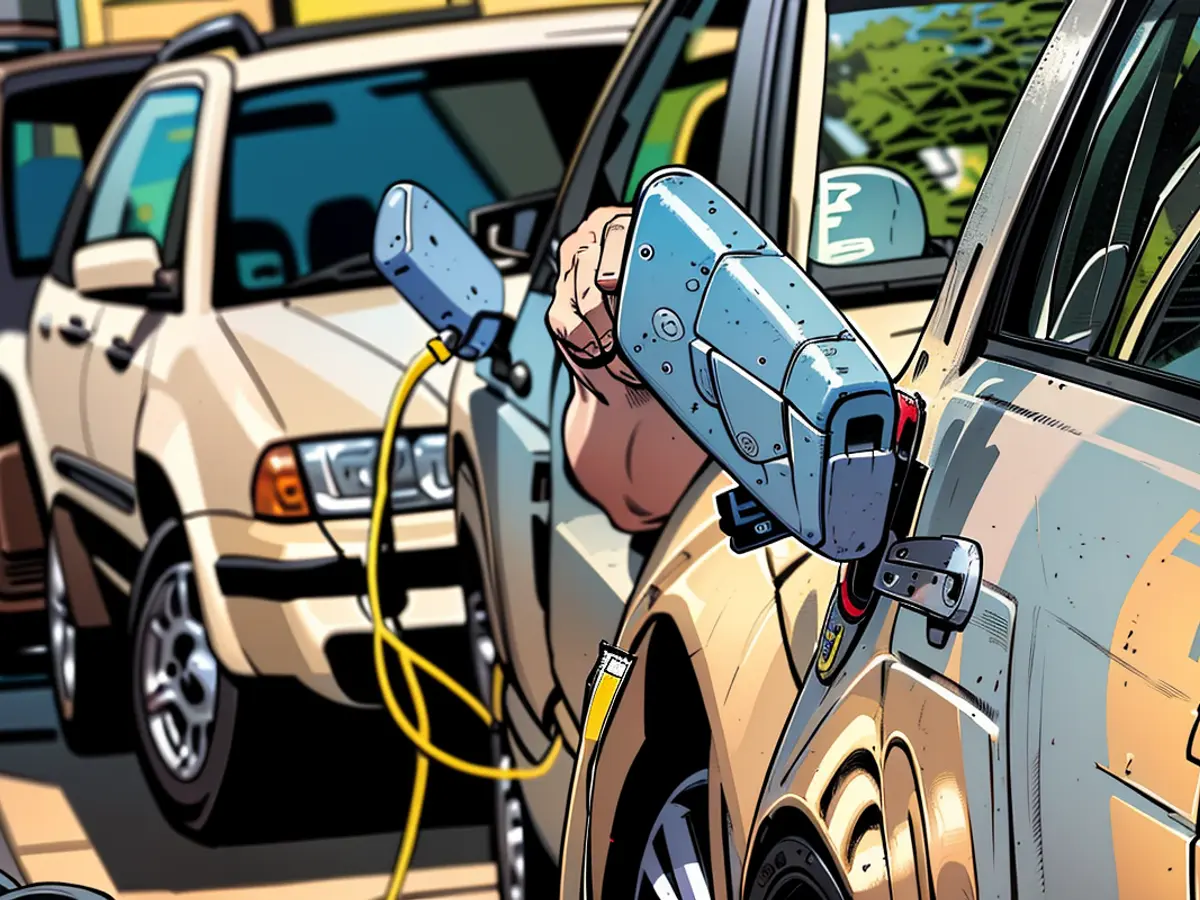European automobile manufacturers label the transition to electric vehicles as an unsuccessful endeavor
The Automotive Industry Federation (ACEA) suggests that the swift electrification of the auto sector is presently impractical due to the sliding sales of electric vehicles and subpar conditions, and urges for less stringent CO2 regulations. Not everyone within the industry agrees with this perspective.
Key players in European automotive production are sounding alarms: Given the slumping sales of electric vehicles and inadequate conditions, ACEA considers the present deadline for manufacturers to completely shift to electric mobility as unrealistic. They urge policymakers for intervention: "Emergency measures" from the EU Commission are required to relax the tough climate objectives, as perceived by the group, to avert the industry's potential collapse. In 2025, new CO2 emission limitations will be instituted in the EU. On average, fleets will only be authorized to discharge 93.6 grams of CO2 per kilometer driven. However, few manufacturers appear capable of meeting these criteria. They either face exorbitant fines or must decrease the production of internal combustion engine vehicles to satisfy the CO2 goals. Therefore, politics should grant more time.
Millions of jobs could be at risk
Actually, the next reassessment of the fleet emission limitations for cars and trucks is slated for 2026 and 2027. However, ACEA pleads for the appraisal to be expedited and for the automotive sector to be catered to in the short run. The association represents 15 of the largest European manufacturers, such as Volkswagen, Daimler, and BMW, all grappling with facilitating the electric shift and meeting the requirements.
The market for electric vehicles is presently headed southwards. According to ACEA, new car sales dipped by 18.3% year-on-year in August, and demand for electric vehicles plunged by 44%. In Germany, the registration of new electric vehicles even plummeted by nearly 70%. In France, the second-largest European market, the decline was around 33%. If the negative trend persists, the likelihood of meeting the new emission limits in the coming year is slim.
For ACEA, the fault lies beyond the industry itself: "The other critical elements necessary for this systemic transformation are not in place." There is a scarcity of charging infrastructure, reasonable electricity prices, purchase and tax incentives, and a dependable supply chain for batteries and raw materials. Economy growth and customer trust in the technology have not matured sufficiently.
The automotive industry has been besieged by impending crises: "The existing regulations fail to account for the fundamental shift in the geopolitical and economic climate of recent years," the lobby group charges. A document is circulating within the industry, advocating for the new CO2 emission limitations to be delayed by two years, as recently advocated by VW Supervisory Board Chairman Hans Dieter Pötsch. Otherwise, up to eight factories may have to shut down, and millions of jobs may be shed.
In this circumstance, Volkswagen and others had until 2019 to implement the more rigorous regulations. Not everyone shares ACEA's apocalyptic outlook. For instance, Europe's second-largest automaker, Stellantis, which emerged from the merge of Fiat Chrysler and PSA and includes Opel, doesn't view things as direly. Stellantis CEO Carlos Tavares stated last week, "It would be absurd to alter the rules now. Everyone was aware of the rules long ago, everyone had time to prepare, and now it's time for a race."
Stellantis has made significant investments in expanding electric vehicle capacity. In fact, due to resistance against stricter CO2 regulations, the company even parted ways with the ACEA lobbying group towards the end of 2022. Stellantis also confronts cheap competition from China and the termination of the electric vehicle subsidy at the end of last year, which inhibits growth in the EV market. However, unlike many other automotive titans, Stellantis has already weathered the painful cuts that may still occur in Wolfsburg and elsewhere. Since 2021, Stellantis has reduced its European workforce by 20,000 jobs, primarily through separation packages. Tavares acknowledged on Tuesday that they had implemented numerous unpopular decisions in the past, but the only reason for doing so was "to prevent ending up like Volkswagen."
In response to ACEA's calls for leniency, some industry players argue that everybody had ample time to prepare for the stricter CO2 regulations. For instance, Stellantis CEO Carlos Tavares asserts, "It would be absurd to alter the rules now, everyone was aware of the rules long ago, everyone had time to prepare, and now it's time for a race." However, other entities, like ACEA, argue that other crucial elements for the electric shift are still lacking, such as adequate charging infrastructure, reasonable electricity prices, and a dependable supply chain for batteries and raw materials. They contend that "the other critical elements necessary for this systemic transformation are not in place."








